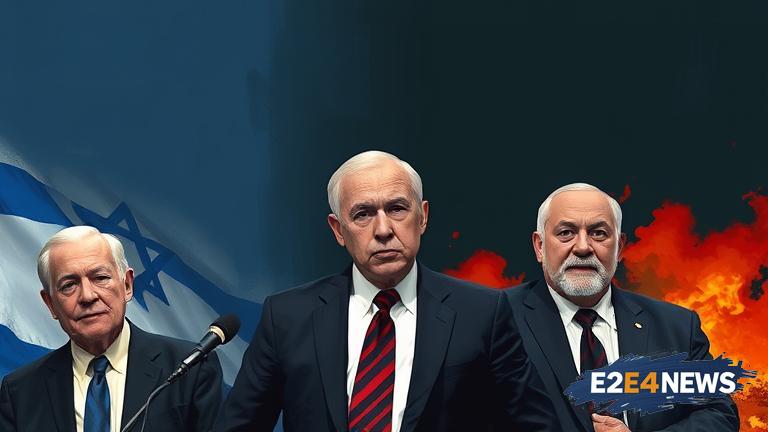A group of former Israeli security chiefs has come out in strong opposition to the ongoing war in Gaza, urging the government to seek a ceasefire and negotiate a peaceful resolution. The officials, who have extensive experience in Israel’s security establishment, argue that the war is not only causing immense human suffering but also undermining Israel’s long-term strategic interests. They point out that the conflict is fueling extremism and destabilizing the region, making it more challenging for Israel to achieve its security goals. The former security chiefs also express concern about the humanitarian crisis unfolding in Gaza, where civilians are bearing the brunt of the violence. They emphasize that Israel has a moral obligation to protect civilians and avoid causing unnecessary harm. The officials believe that a ceasefire would allow for the delivery of humanitarian aid and the rebuilding of damaged infrastructure. They also argue that negotiations with Palestinian leaders could help to address the underlying issues driving the conflict, such as the blockade of Gaza and the expansion of Israeli settlements. The former security chiefs acknowledge that a ceasefire would require difficult concessions from both sides, but they believe that the benefits of a peaceful resolution outweigh the costs of continued violence. They urge the Israeli government to take a more nuanced approach to the conflict, one that balances security concerns with humanitarian and diplomatic considerations. The officials also call on the international community to play a more active role in promoting a peaceful resolution, through diplomatic efforts and economic support. They believe that a ceasefire would not only benefit Israel and the Palestinians but also contribute to regional stability and global security. The former security chiefs’ call for a ceasefire has been met with skepticism by some Israeli officials, who argue that the war is necessary to protect Israel’s security and deter future attacks. However, the officials’ intervention has also been welcomed by many Israelis who are weary of the conflict and eager for a peaceful resolution. The debate over the war in Gaza has sparked a lively discussion in Israel about the country’s security strategy and the moral implications of the conflict. Many Israelis are questioning the government’s approach to the war, which has resulted in significant civilian casualties and damage to infrastructure. The former security chiefs’ call for a ceasefire has added momentum to this debate, highlighting the need for a more nuanced and sustainable approach to the conflict. As the war in Gaza continues, the international community is watching with growing concern, urging all parties to seek a peaceful resolution and avoid further escalation. The United Nations has called for an immediate ceasefire, citing the devastating humanitarian consequences of the conflict. The European Union has also expressed concern about the war, urging Israel to exercise restraint and protect civilians. The former Israeli security chiefs’ call for a ceasefire is a significant development in the debate over the war in Gaza, highlighting the need for a more thoughtful and sustainable approach to the conflict. It remains to be seen whether their intervention will have a significant impact on the government’s policy, but their voices have added important momentum to the debate. The war in Gaza has sparked a global conversation about the Israeli-Palestinian conflict, with many people calling for a peaceful resolution and an end to the violence. The former security chiefs’ call for a ceasefire is a powerful reminder that there are alternative approaches to the conflict, ones that prioritize diplomacy, humanitarianism, and strategic thinking. As the international community continues to grapple with the complexities of the conflict, the former security chiefs’ intervention serves as a timely reminder of the need for a more nuanced and sustainable approach to the Israeli-Palestinian conflict.





